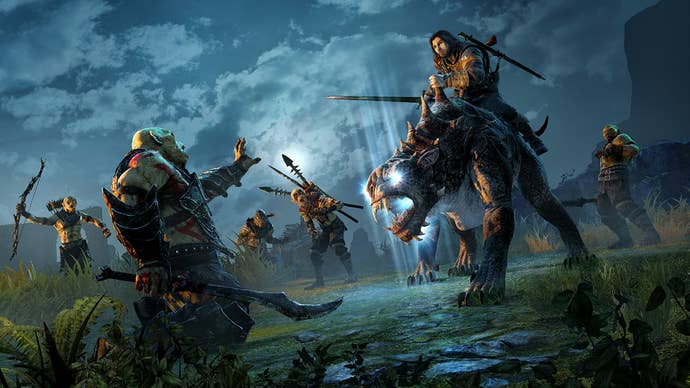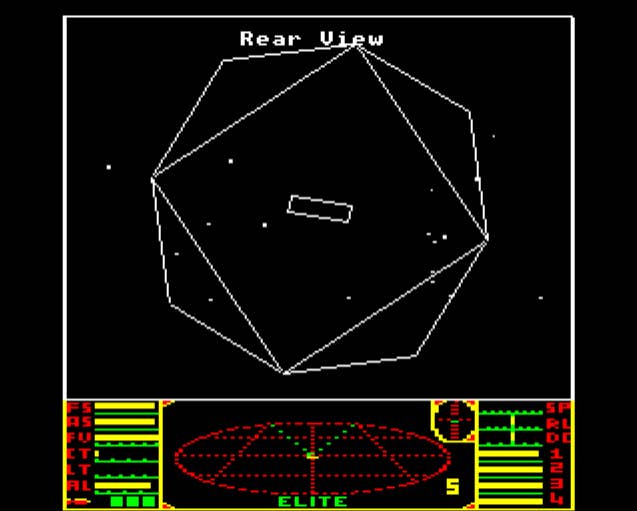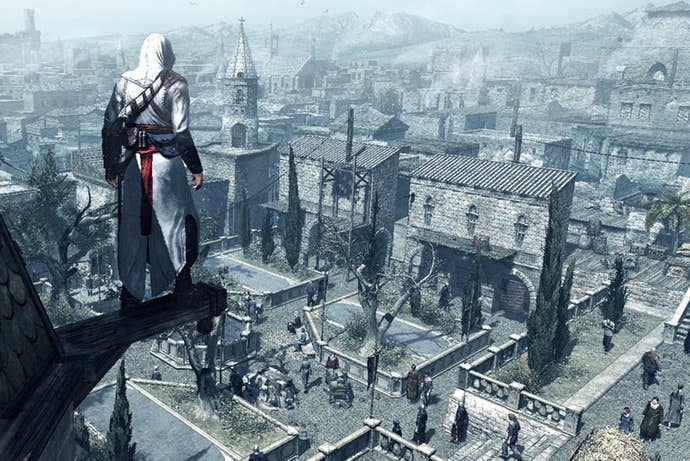E3 Precap: Exploring the Open World
There's a ton of open-world games coming at E3. Here's where the genre's been and where it's going.
This article first appeared on USgamer, a partner publication of VG247. Some content, such as this article, has been migrated to VG247 for posterity after USgamer's closure - but it has not been edited or further vetted by the VG247 team.
Heading into E3 2014, it's clear that open-world is a driving force in the AAA development space. We've already had the PlayStation 4-exclusive Infamous: Second Son and The Amazing Spider-Man 2 so far, and Ubisoft's open-world extravaganza Watch Dogs touches down today. For the rest of the year and stretching into 2015, there's Enemy Front, Risen 3: Titan Lords, Middle-earth: Shadow of Mordor, Batman: Arkham Knight, Assassin's Creed: Unity, Far Cry 4, Mad Max, The Witcher 3: Wild Hunt, and the rumored Assassin's Creed: Comet. That's not counting games that aren't quite open-world, but share some of its DNA, like Tomb Raider and upcoming sequels Sniper Elite 3 and Dragon Age: Inquisition.

It's not something that's stopping anytime soon, especially with publishers like Ubisoft leaning heavily on the concept. Even the classic Metal Gear series is going open-world with its latest iteration.
Let's pin down some definitions before we keep going. When I say "open-world", I'm talking about games that place you in a large, defined area, usually a city or island. Within this digital sandbox, players have the ability to tackle most objectives in any order. Many open-world games have story-based campaigns, but that's not the full focus of the title. Instead, using a few broad mission types, procedural generation, and concepts like territory control, open-world titles tend to lean hard on player choice and emergent gameplay. Things happen that developers couldn't foresee, moments that players can share online and in person; in fact, with the video sharing abilities of Twitch, YouTube, and new consoles, emergent gameplay becomes a more pronounced selling point.
"We believe in open-world," Ubisoft European executive director Alain Corre told our sister site Eurogamer last year. "When you have freedom in a world - that can also have seamless multiplayer - that brings something new to the gamer, rather than having a scripted story. Freedom brings something unique. There have been open-worlds before, but I think the feeling you have when you play an open-world is second to none. And now we're pushing all of our creators to go in that direction."
Ian Bell and David Braben's Elite, released in 1984, is thought of as the first real open-world title. The space sim was low-tech compared to today's standards, but it allowed players the freedom to fly anywhere, hunt vicious alien races, and trade goods. Following Elite, there were other games that designed their own open-world elements independently, like Midwinter, Metroid, Hunter, and the first Elder Scrolls game, Arena.
1999's Shenmue brought things forward in a major way, with a fully-realized city to wander around in; director Yu Suzuki made sure the title included voiced NPCs with their own simulated lives, day and night cycles, and weather. The attention to detail was amazing at the time, and it's still impressive what Sega AM2 accomplished with the Dreamcast. Shenmue was so revolutionary that fans are still calling for a second sequel to this day.

The big shift in the open-world, the point where most publishers realized how much money could be made, was when Grand Theft Auto III released in 2001. DMA Design (now known as Rockstar North) had already played around with the genre; the Grand Theft Auto series has always been open-world and Body Harvest on Nintendo 64 retained many of the same elements, but this was the first time that mainstream audiences took notice of the genre. Other games followed, including The Getaway, True Crime: Streets of LA, and Driv3r, but nothing could touch the success of Grand Theft Auto III and its sequels, Vice City and San Andreas.
The next real changes came when we transitioned to the Xbox 360 and PlayStation 3. Developers used the additional power of those consoles to bring more open-world gameplay to mainstream consumers. In the span of a few years, we saw the release of Elder Scrolls IV: Oblivion, Saints Row, Crackdown, Gun, The Godfather, and Scarface. As developers got better with the hardware, they began to ask themselves, how far can we take it? What else can we do?

Starting in 2007, we began to see their answers to those questions. Ubisoft took a chance with Prince of Persia and the final result was the historical open-world experience, Assassin's Creed. At the same time, another Ubisoft team took Crytek's Far Cry to Africa and released Far Cry 2. Volition moved beyond simply cloning GTA with Saints Row 2, and took its Red Faction series into the third-person viewpoint with Red Faction: Guerilla the following year. Grand Theft Auto IV set the bar an amazing recreation of New York City. Just Cause 2 let you surf on top of a damn fighter jet. At some point, open-world became the 'other' AAA development option. Either you created a completely linear blockbuster action experience, or you let players free in the sandbox you had created.
The genre isn't perfect. In many open-world titles, there's a startling amount of repetition; you'll find yourself freeing another outpost, escorting another VIP, or killing another mob boss over and over. In the worst case, the only thing pushing you forward is the sunk cost fallacy and the realization that you've already put hours into the game. You're just trying to complete the entire map, or finish that last mission for the achievement. The last few information gathering missions in the first Assassin's Creed were like pulling teeth for me; I just wanted it to be over. That's where open-world frequently stumbles and falls.
But those emergent moments are still where the genre shines. When things you couldn't have planned go off without a hitch and you're left with a wild story or videos like this:
or this:
From Elite to Watch Dogs, we've come a long way and the next step in open-world action looks to be the addition of online connectivity, blurring the line between single-player title and MMO. Watch Dogs features player invasions, where others can join your game to steal from you via hacking or take part in a friendly race. Assassin's Creed: Unity is rumored to include 4-player cooperative play. Open-world design already lends itself towards gamers playing a title for a long time, and publishers are hoping an online kick will lengthen that playtime even more.
There's also the growth in scope as processing power and team sizes increase. Batman: Arkham Knight's Gotham is big enough to make the inclusion of the new Batmobile worthwhile. Assassin's Creed IV: Black Flag was larger than Assassin's Creed III and fully-integrated its sailing mechanic to recreate the Caribbean, and it's possible AC: Unity will be larger still. Hello Games is looking to create an open-world game that actually covers entire worlds, using the magic of procedural-generation in No Man's Sky.
I love open-world games. I'm probably USgamer's resident open-world guy. All those upcoming titles I mentioned before? (Enemy Front, Risen 3: Titan Lords, Middle-earth: Shadow of Mordor, Batman: Arkham Knight, Assassin's Creed: Unity, and Far Cry 4 if you've forgotten.) I'm waiting for each and every one. I've been playing the hell out of Watch Dogs and will probably drop a few more hours into it tonight.
To me, open-world games represent possibility. That's not to say crazy stuff doesn't happen in more linear games, but there's just that extra element of random chance that makes open-world games amazing. I'll keep playing them as long as developers keep dropping them in my lap. Does everything need to be open-world? Of course not, and I understand if you prefer the more linear experience of Batman: Arkham Asylum to the dystopian sprawl of Arkham City and Origins. For me, I'll take the open road (or sea), a stealth kill or two, and a crazy plan that goes off with an interesting hitch or two. Viva la open-world!



